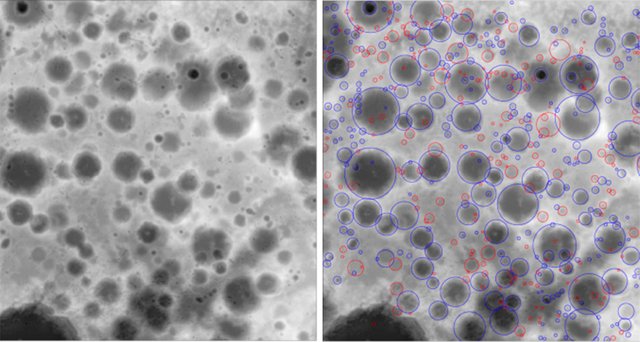Artificial intelligence is mastering a wider variety of jobs than ever before

In 2018, artificial intelligence took on new tasks, with these smarty-pants algorithms acing everything from disease diagnosis to crater counting.
Coming to a clinic near you
In April, the U.S. Food and Drug Administration permitted marketing of the first artificial intelligence that diagnoses health problems at primary care clinics without specialist supervision (SN: 3/31/18, p. 15). The program, which inspects eye images for signs of diabetes-related vision loss, could be a boon for people in remote or low-resource areas where ophthalmologists are scarce. Other eye-inspecting AI programs are learning to recognize everything from age-related vision loss to heart problems.
Moon mapping
One artificial intelligence is a celestial cartographer after Galileo’s own heart. The algorithm studied a third of the moon’s surface to learn what craters look like (SN Online: 3/15/18). When playing crater “I Spy” with a different third of the lunar landscape, the AI found 92 percent of previously discovered craters and spotted about 6,000 pockmarks that humans had missed. If focused on rocky planets and icy moons, this program could give new insight into the solar system’s history.
Ear to the ground
Artificial intelligence that predicts where earthquake aftershocks will hit could help people in high-risk areas better prepare for these dangerous seismic shake-ups. A program that studied characteristics of over 130,000 earthquakes and their aftershocks learned to predict aftershock locations much more accurately than traditional techniques (SN Online: 8/29/18).
Seeing is not believing
Of course, smarter artificial intelligence isn’t always good news. One AI that raised eyebrows in 2018 generates realistic fake video footage by making the subject of one video mirror the motions and expressions of someone else in a different clip (SN: 9/15/18, p. 12). In the wrong hands, this AI could be a powerful tool for spreading misinformation (SN: 8/4/18, p. 22)
click more: https://www.sciencenews.org/article/artificial-intelligence-machine-learning-2018-yir?tgt=nr